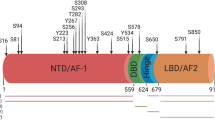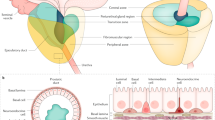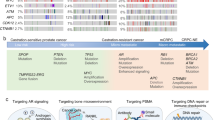Abstract
The effects of farnesyl:protein transferase inhibitors (FTIs) were evaluated against hormone-dependent and hormone-independent prostate cancer cell lines harboring mutant and wild type Ras. The combinations of the FTI with hormones and chemotherapy were explored. The effect of FTI on the growth of human prostate cancer lines was examined under anchorage-dependent and -independent conditions. Changes in Ras processing and cellular localization were examined by immunoblotting and immunocytochemistry. Hormone-dependent (LNCaP) and -independent (TSU-Pr1, PC3 and DU145) human prostate cancer cell lines were growth-inhibited by the FTI L-744,832 at concentrations ranging from 100 nM to 20 μM. The inhibition was accompanied by loss of protein farnesylation and with the accumulation of Ha-Ras as its unprocessed, cytosolic form. No effect on N- and Ki-Ras processing was observed. The transformed phenotype of TSU-Pr1 cells, which possess a Ha-Ras Gly-12-Val activating mutation, reverted following FTI treatment. Enhanced antitumor effects were observed when the FTI was combined with gamma-radiation, etoposide, doxorubicin, cisplatin, estramustine and the antihormone bicalutamide. In particular, the combination of taxol and FTI was synergistic for DU145 cells, a cell line that is only marginally sensitive to the FTI alone. The sensitivity of human prostate cancer cell lines to the FTI is independent of the presence of mutations of tumor suppressors, cell cycle regulators and of the activation of a variety of oncogenes, including Ras. A cell line expressing mutated Ha-Ras is particularly sensitive. Enhanced antitumor effects were observed with an anti-androgen, γ-irradiation, and several chemotherapeutic agents. These findings support the clinical evaluation of FTIs alone or in combination as treatment for this disease.
This is a preview of subscription content, access via your institution
Access options
Subscribe to this journal
Receive 4 print issues and online access
$259.00 per year
only $64.75 per issue
Buy this article
- Purchase on Springer Link
- Instant access to full article PDF
Prices may be subject to local taxes which are calculated during checkout
Similar content being viewed by others
Author information
Authors and Affiliations
Corresponding author
Rights and permissions
About this article
Cite this article
Sepp-Lorenzino, L., Tjaden, G., Moasser, M. et al. Farnesyl:protein transferase inhibitors as potential agents for the management of human prostate cancer. Prostate Cancer Prostatic Dis 4, 33–43 (2001). https://doi.org/10.1038/sj.pcan.4500491
Received:
Accepted:
Published:
Issue Date:
DOI: https://doi.org/10.1038/sj.pcan.4500491
Keywords
This article is cited by
-
Farnesyl protein transferase inhibitory components of Polygonum multiflorum
Archives of Pharmacal Research (2009)
-
Die Rolle des Androgenrezeptors im hormonrefraktären Prostatakarzinom
Der Urologe (2008)
-
Farnesyl protein transferase and tumor cell growth inhibitory activities of lipiferolide isolated fromLiriodendron tulipifera
Archives of Pharmacal Research (2007)



